Course leaflets here
The science faculty plays a lead role in the development of analytical and problem solving skills which lead to an understanding of the physical world in which we all live. It provides an appreciation of the influence that science has on the changing world around us. The faculty includes the biology, chemistry and physics departments and, as well as the individual courses delivered, is responsible for the general science course in first and second year.
This course is based on the new curriculum for excellence and consists of the following units: Introduction to Science, Keeping the Body Working including Interdisciplinary week on Healthy Heart,, Understanding Matter, Visible and Non-Visible Radiations, Cells, Microbes and Disease, Energy Transfer Interdisciplinary week: Action and Reaction, Chemical Elements, Compounds and Separations, Topical Science, Rapid Response: Micro Organisms. We also teach science enquiry skills and thinking skills throughout the course.
Environmental Science National 4
Environmental Science aims to produce responsible citizens, through studying relevant areas such as the living environment, the Earth’s resources and sustainability
Environmental Science has three units:
1. Living environment
2. Sustainability
3. Earth’s resources
Both Units 2 and 3 will be studied in a Scottish context
Living Environment: In this unit you will:
- Develop your interest and enthusiasm for environmental science by studying: Interdependence, adaptation for survival, the impact of population growth and human impact on biodiversity , the nitrogen cycle and the environmental impact of fertilisers
Earth’s resources: In this unit you will:
- Develop your interest and enthusiasm for environmental science by studying: Responsible use and conservation of non-renewable and renewable resources, formation and use of fossil fuels, derivation and uses of materials derived from crude oil, risks and benefits of different energy sources, including those produced from plants, the carbon cycle, processes involved in maintaining the balance of gases in the air, causes and implications of changes in the balance.
Sustainability: In this unit you will:
- Develop your interest and enthusiasm for environmental science by studying: sustainability of key natural resources and possible implications for human activity, the interaction between humans and the environment and the impact of human activity on an area, the role of agriculture in the production of food and raw material and its environmental impacts and sustainability, society’s energy needs, impact of developments in transport infrastructure in a selected area and development of sustainable systems.
- AV Unit. Research project completed in school and marked internally
Biology
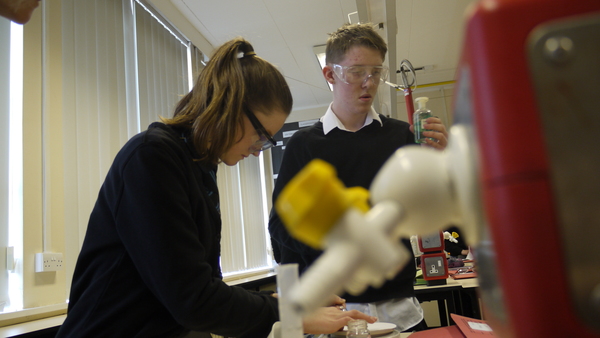
S3: The new S3 course is based on the CFE Level 4 Experiences and Outcomes and it is designed to progress smoothly onto National 4 and National 5 in S4. The course is divided into 3 units which are shown below:
1. Cell Biology
2. Multicellular Organisms
3. Life on Earth
S4/5/6:
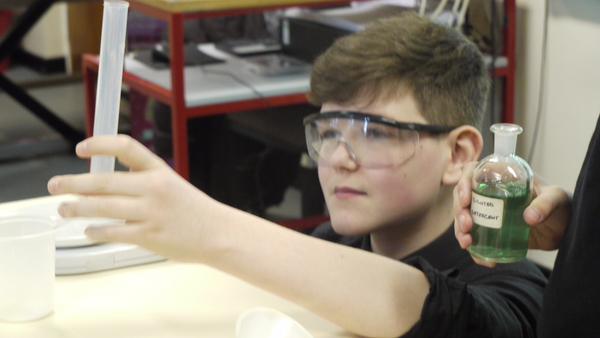
National 4/5 Biology:
The National 4 and 5 Biology courses enable learners to develop and apply knowledge and understanding of Biology. Learners also develop an understanding of Biology’s role in scientific issues and relevant applications of Biology in society and the environment.
The units studied are:
- Cell Biology
- Multicellular organisms
- Life on Earth
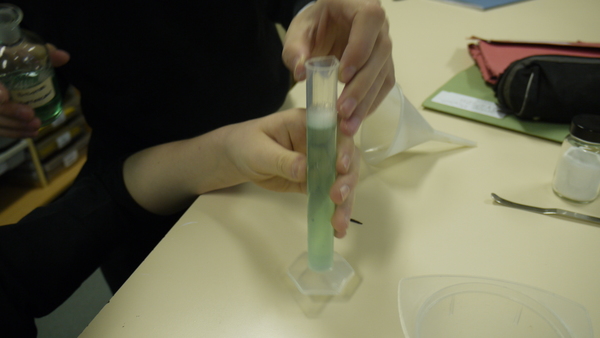
Both National 4 and 5 courses consist of mandatory internal assessment which will assess knowledge, problem solving and practical skills. National 4 pupils will need to pass each unit plus an added value assignment (marked internally) to pass the course. National 5 pupils will also need to pass each unit, but in addition they will need to submit an added value assignment to the SQA for marking and sit a final exam in May.
For students who are successful at National 4, the progression will be to National 5 Biology. For students who are successful at National 5, the progression will be to Higher Biology.
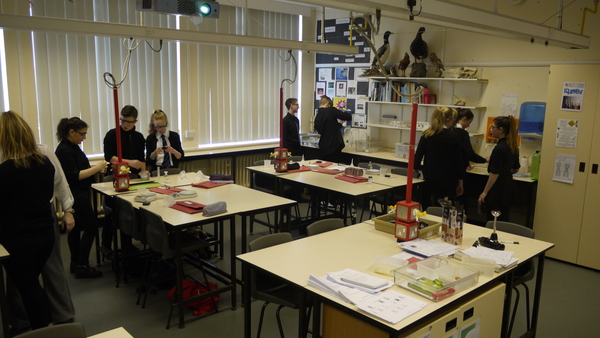
Higher Biology:
Currently, pupils who achieved a credit Standard Grade or Intermediate 1 Biology grade B in the 2013 exams have progressed onto the old Higher course. This course is divided into 3 units as follows:
- Cell Biology
- Environmental Biology and Genetics
- Control and Regulation
To pass this course pupil must successfully complete a unit assessment for each unit and a practical investigation write-up. In addition, pupils sit a final exam in May.
From 2014 the new Higher Biology will be introduced. This Higher will progress on from National 5 and will have similar aims of developing pupils’ knowledge and understanding of biological issues and relevant applications of Biology in society and the environment.
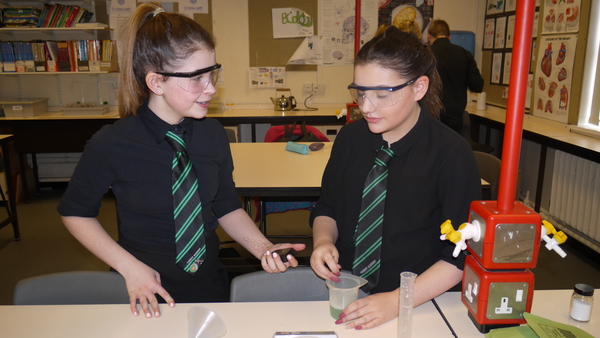
The course is divided into 3 units:
- DNA and the Genome
- Metabolism and Survival
- Sustainability and Interdependence
Assessment will be through an end of unit test, an added value assignment and a final exam.
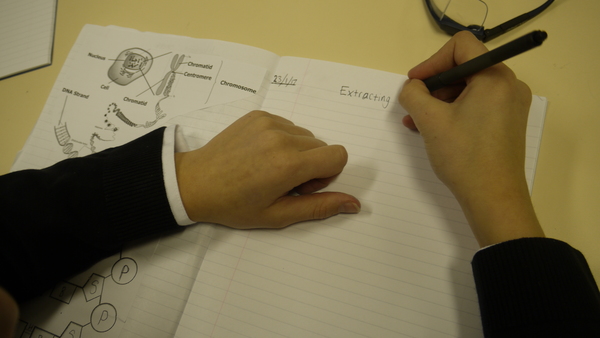
Advanced Higher Biology:
Pupils who achieve a B grade (or above) in Higher Biology can progress onto Advanced Higher Biology. This course is divided into 2 full units (Cell and Molecular Biology, and Environmental Biology) and 1 half unit (Physiology, Health and Exercise). Pupils need to pass an assessment for each of these units and a practical write-up from one of the three units.
In addition, pupils will need to carry out an investigation into a biological topic of their choice. This will be submitted to SQA or marking. Pupils will sit an external exam in May.
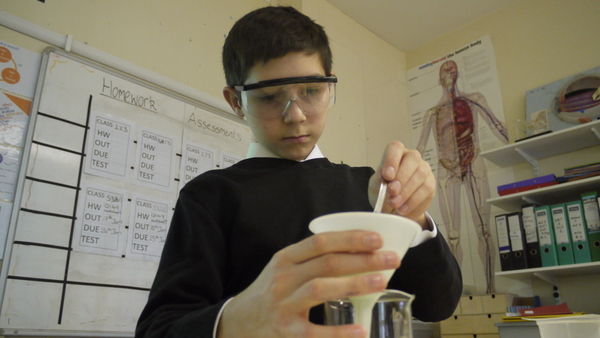
Chemistry:
Click here for interactive Periodic Table
S3 CfE Chemistry
A development of the fundamental principles of chemistry and their application. The emphasis will be shared equally between developing a base of knowledge and problem solving skills to better prepare students for careers in Chemistry and related life science and engineering fields. The course includes a mixture of experiments, some industrial visits and lots of computer based resources to supplement more conventional learning techniques. The course has 3 core modules;
- Understanding Matter II
- Fuels
- Metals
At the end of the core modules pupils will select one more module, based upon their interests;
- Biochemistry – covers the chemistry of how plants capture energy from the sun and how they store and use this energy. Aspects of human biochemistry are also covered.
- Carbon Engineering – We will learn how these different types of carbon are formed and why their different physical properties mean they are already being used for engineering purposes such as building the Dreamliner aircraft, tipping drills and making sports equipment
National 4/5 Chemistry:
The National 4 and 5 Chemistry courses enable learners to develop and apply knowledge and understanding of chemistry. Learners also develop an understanding of chemistry’s role in scientific issues and relevant applications of chemistry in society and the environment.
The units studied are:
- Chemical Changes and Structure
- Nature’s Chemistry
- Chemistry in Society
Both the National 4 and 5 courses consist of mandatory internal assessment, which will assess knowledge, problem solving and practical skills. The National 5 course will also consist of an added value assignment (marked by the SQA) and final SQA exam which will take place in May.
For students who are successful at National 4, the progression will be to National 5 Chemistry.
For students who are successful at National 5, the progression will be to Higher Chemistry.
Higher Chemistry
Currently, pupils who achieved a credit Standard Grade in the 2013 exams have progressed onto the old Higher course. This course is divided into 3 units as follows:
- Energy
- The World of Carbon
- Chemical Reactions
To pass this course, pupils must successfully complete a unit assessment for each unit and a practical investigation write-up. In addition, pupils sit a final exam in May.
From 2014 the new Higher Chemistry course will be introduced. This Higher will progress on from National 5 and will have similar aims of developing pupils’ knowledge and understanding of chemistry issues and relevant applications of chemistry in society and the environment.
The course is divided into 2 half and 2 full units:
- Chemical Changes and Structure (half unit)
- Researching Chemistry (half unit)
- Nature’s Chemistry (full unit)
- Chemistry in Society (full unit)
Assessment will be through an end of unit test, an added value assignment (externally marked) and a final exam.
Advanced Higher Chemistry:
Pupils who achieve a B grade (or above) in Chemistry Higher can progress onto Advanced Higher Chemistry. This course is divided into 3 units: Organic Chemistry, Inorganic Chemistry and Physical Chemistry. Pupils need to pass an assessment for each of these units and a practical write-up from one of the three units.
In addition, pupils will need to carry out an investigation into a chemistry topic of their choice. This will be submitted to SQA for marking. Pupils will sit an external exam in May. This course is a good introduction to the way students will be expected to work at university.
Physics
S3: The new S3 course is based on the CFE Level 4 Experiences and Outcomes and it is designed to progress smoothly onto National 4 and National 5 in S4. The course covers the following 7 areas of physics:
- Forces
- Electricity
- Electronics
- Sound engineering
- Electromagnetic radiation
- Space
- Topical Science
S4/5/6:
National 4/5 Physics: The National 4 and 5 Physics courses enable learners to develop and apply knowledge and understanding of Physics. Learners also develop an understanding of the role of Physics in scientific issues and relevant applications of Physics in society and the environment.
The units studied are:
- Electricity and Energy
- Waves and Radiation
- Dynamics and Space
Both National 4 and 5 courses consist of mandatory internal assessment which will assess knowledge, problem solving and practical skills. National 4 pupils will need to pass each unit plus an added value assignment (marked internally) to pass the course. National 5 pupils will also need to pass each unit, but in addition they will need to submit an added value assignment to the SQA for marking and sit a final exam in May.
For students who are successful at National 4, the progression will be to National 5 Physics. For students who are successful at National 5, the progression will be to Higher Physics
Higher Physics:
Currently, pupils who achieved a credit Standard Grade or Intermediate 1 Physics grade B in the 2013 exams have progressed onto the old Higher course. This course is divided into 3 units as follows:
- Mechanics and Properties of matter
- Electricity and Electronics
- Radiation and Matter
To pass this course pupils must successfully complete a unit assessment for each unit and a practical investigation write-up. In addition, pupils sit a final exam in May.
From 2014 the new Higher Physics will be introduced. This Higher will progress on from National 5 and will have similar aims of developing pupils’ knowledge and understanding of Physics issues and relevant applications of Physics in society and the environment.
The course is divided into 2 full units and 2 half units:
- Our Dynamic Universe (full unit)
- Particles and Waves (full unit)
- Electricity (half unit)
- Researching Physics (half unit)
Assessment will be through an end of unit test, an added value assignment (externally marked) and a final exam
Advanced Higher Physics:
Pupils who achieve a B grade (or above) in Higher Physics can progress onto Advanced Higher Physics. This course is divided into 3 units: Mechanics, Electrical Phenomena and Wave Phenomena. Pupils need to pass an assessment for each of these units and a practical write-up from one of the three units.
In addition, pupils will need to carry out an investigation into a Physics topic of their choice. This will be submitted to SQA or marking. Pupils will sit an external exam in May
